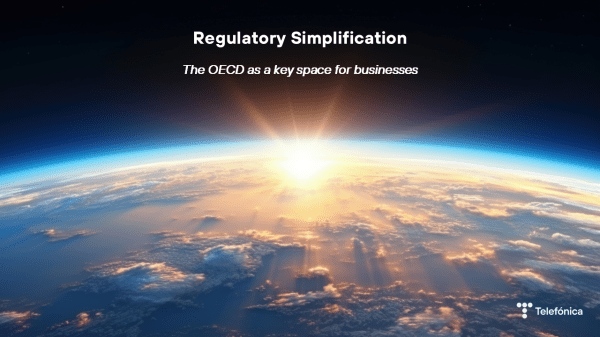We are clearly looking at a very different world from the one we have seen in the past. The current conjuncture of financial and economic crisis across the World drives all stakeholders to rethink strategies and policies not only to eradicate poverty of the face of the earth but to guaranty economic and social development and growth in every corner of the planet.
Crises are above all the duty to grasp opportunities. That is why the World Bank Group (WBG) announced the 25th of July a new Information and Communication Technology (ICT) strategy aimed at helping developing countries use ICT to transform delivery of basic services, drive innovations and productivity gains, and improve competitiveness.
Internet, with the expansion of the broadband, has become a critical tool to support economic growth and innovation. It transforms every sector it touches and if today it enables communication amongst people, we have to work for enabling the connectivity of things for the benefit of the people.
World Bank Group studies have precisely concluded that nearly 5 billion people living in developing countries use mobile phone and the number of Internet users has risen 10-fold in the last decade. The most important: people use the ICT “to learn where best to fish and what market to sell their produce in. (…) They pay bills, send money back home, and receive cash transfers. They do business on mobile phones. (…) And as we’ve seen in the Mediterranean countries, they use social networks to make their voice heard and trigger change”.
The WBG has been committed to ICT sector reforms and infrastructures since 2000 supporting a public-private partnership approach. The outcomes of the actions supported have been very encouraging: the reforms have attracted private investments, have improved competitiveness and have contributed to market access to ICT infrastructure services, amongst others.
The fact is that today the sector of telecommunication and its penetration in our daily life is much more complex than it was at the beginning of the new century: Internet, mobile, new services, and new agents create a completely new and varied ecosystem. That is why the World Bank Group had to redefine its strategy.
Based on the experiences over the past decade and taking into account the new technological and economic environment the World Bank has launched this bold initiative, which has a three-year horizon, starting in mid-2012. This strategy is based on three pillars around some priority areas of actions, in order to promote competition and private sector rollout of ICT infrastructure -in particular broadband, to develop ICT-related job creation and the use of ICT across the economy:
- Under the Transform pillar, the most important priority of the new strategy, they try to foster the good governance making development more open and accountable, and improving service delivery.
- Under the Innovative pillar they look for developing competitive IT-based service industries and fostering ICT innovation across the economy – with a focus on job creation, especially for women and youth.
- Under the Connect pillar they aim to scaling up affordable access to broadband – including for women, disabled citizens, disadvantaged communities, and people living in remote and rural areas.







